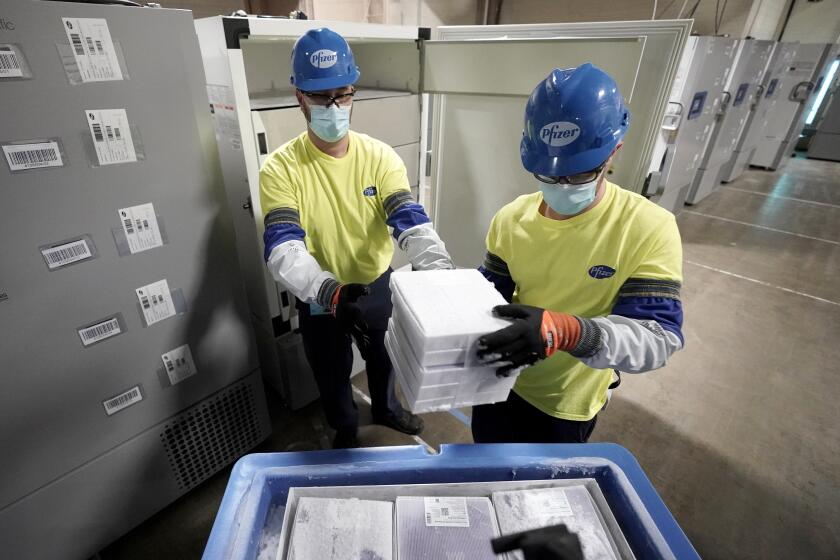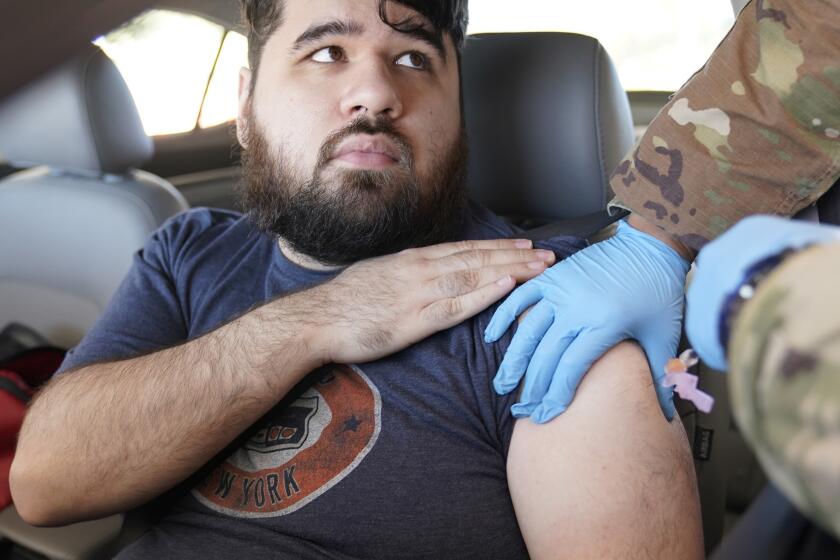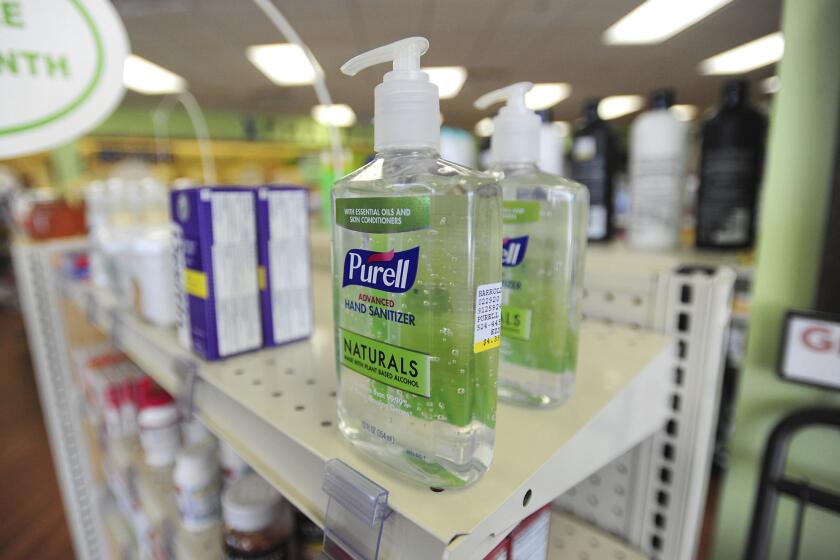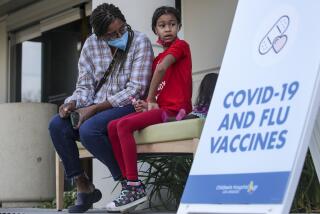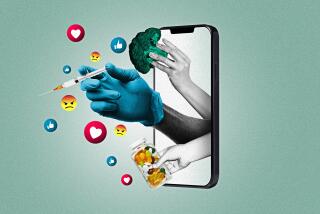Why do we get side effects from vaccines? Experts say that means it’s working
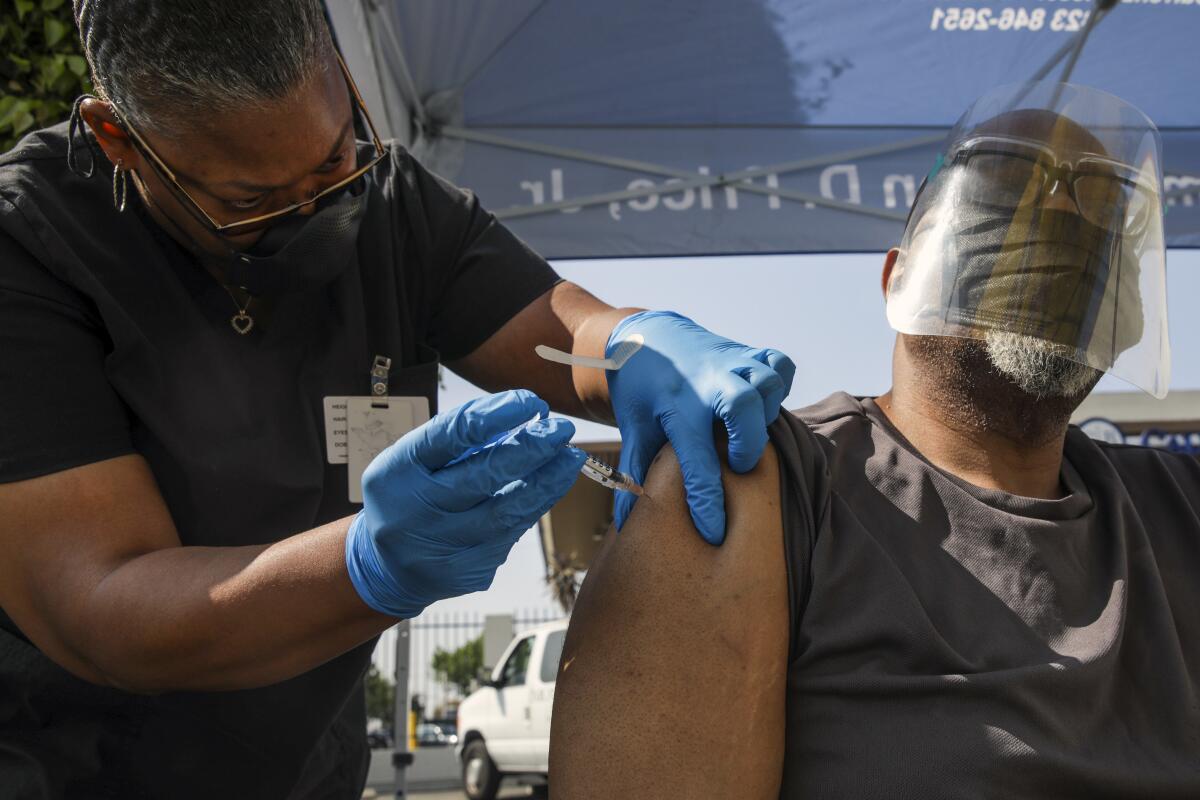
- Share via
The cooling sensation of an alcohol swab on your upper bicep is a cue for what’s about to come next: the injection of a needle that delivers a dose of vaccine.
More than 69% of Americans have received at least one dose of a COVID-19 vaccine, and as a bandage is applied to your arm, you are part of the club.
Whether you’re getting your first shot, a second dose or a booster, you’re likely to experience some side effects.
They may be inconvenient, and they certainly can be uncomfortable. But immunologists and virologists say they are to be expected. And you might even welcome them.
Here’s why, and what you should expect if you have a date with a needle.
Why do vaccines cause side effects?
To put it simply, the side effects are a biological sign that the vaccine is working.
All three of the COVID-19 vaccines available in the U.S. effectively work in the same way, said Dr. David Pride, an infectious disease specialist at UC San Diego.
The vaccines contain genetic instructions for making copies of the coronavirus’ spike protein. The Pfizer-BioNTech and Moderna vaccines use mRNA to carry the instructions, and the Johnson & Johnson shot employs a disabled adenovirus, which is harmless.
Once the instructions are delivered, it’s up to your cells to do the work. The fake spike proteins can’t do any damage since they’re not connected to actual coronaviruses. But your body will detect them and think an infection is underway, prompting the immune system to swing into action, Pride said. You can think of it as a training run.
The immune response comes in two parts. First, the innate immune system is alerted to the arrival of possible viruses or other pathogens in your body, said Dr. Peter Hotez, co-director of the Texas Children’s Hospital Center for Vaccine Development. Then the adaptive immune system produces antibodies that can respond appropriately to the intruder — and, if necessary in the future, to an actual encounter with the virus.
The side effects you feel are a natural part of your immune system’s response to the vaccine’s viral payload.
The first full year of the biggest vaccination drive in American history has saved many lives but has left many behind.
What’s normal and what’s not?
Side effects to a COVID-19 vaccine are sometimes mild and sometimes more intense, like a bad cold or a case of the flu. Either way, they shouldn’t last more than 72 hours.
The most common side effects are low-grade fever, fatigue, muscle pain, headache, chills and nausea, according to the Centers for Disease Control and Prevention. Temporary soreness at the injection site is also common. As Dr. George Rutherford, professor of epidemiology and biostatistics at UC San Francisco, puts it: You just got stuck with a needle; vaccine or not, that’s going to hurt.
The clinic or pharmacy where you get your shot will ask you to hang around for 15 or 30 minutes after after your injection, so they can monitor you for rare but serious reactions, such as an acute allergic reaction that requires epinephrine.
Once you get home, you can take over-the-counter pain relievers such as Tylenol or Advil. (Don’t take them before your shot because that might dampen the vaccine’s effectiveness.) Beyond allowing your body to rest, there’s not much else you can do while riding out normal side effects.
In rare cases, people — mostly teenage boys and young men — experience myocarditis (inflammation of the heart muscle) or pericarditis (inflammation of the tissue that surrounds the heart) in the week after getting a shot. Symptoms include chest pain, shortness of breath and feelings of having a fast-beating or pounding heart. If this happens to you, seek medical attention right away. In most cases, the conditions are easily treated with medicine and rest.
A very small number of people — mostly women under age 50 — who get the Johnson & Johnson vaccine may experience a serious side effect called thrombosis with thrombocytopenia syndrome, or TTS. Symptoms include chest pain, leg swelling, shortness of breath, headaches and abdominal pain. If you develop these symptoms after getting a J&J shot, see a doctor right away.
Any other symptoms that typically aren’t associated with vaccines should be monitored. If they don’t improve, call your doctor or go to the emergency room.
With immunity waning and the Omicron variant looming, many scientists are saying the definition of ‘fully vaccinated’ should include a booster shot.
Does a lack of side effects mean the vaccine isn’t working?
No. Some “lucky people” experience few or no side effects. But that doesn’t mean their immune system isn’t properly responding.
Hotez said there is no correlation between the severity of side effects and the strength of the immune response. In other words, having no side effects doesn’t mean the vaccine is not working, and having more side effects doesn’t mean it’s working better.
Antibody tests can show how well your immune system has responded to a vaccine, but Pride said people who are immunocompromised are the only ones who need to worry about that. For most people, there’s little chance the vaccine will fail to stimulate an immune response. Talk to your doctor if you’re unsure.
The 2021 holidays will be much different from 2020 thanks to the COVID-19 vaccines. But we aren’t quite back to normal. Here’s what you should know.
Other things to know about vaccines
- It is impossible for you to get coronavirus from the vaccines.
- Likewise, if you’re feeling sick after getting a vaccine, you don’t need to worry about being contagious and spreading COVID-19 to anyone else.
- Booster shots are necessary, Hotez said. Vaccinations are almost always given in a series, and the COVID-19 vaccine is turning out to be no different. For the best immune response, you have to continue training your system, he said.
- You have the option of getting a different type of vaccine for your booster shot than you did for your initial immunization. Whether you stick with the same brand or go with a mix-and-match approach won’t make much difference in terms of side effects, Pride said.
- Breakthrough infections in fully vaccinated people can occur, but it’s rare for them to result in severe illness, hospitalization or death. You can check if you have an active infection by using an over-the-counter rapid test.
This year you may be able to roll over the unused money in your flexible spending account. But if not, here are ways to spend the balance.
